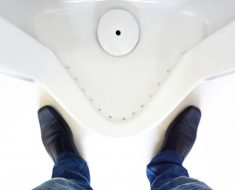We spoke to Matildas goalkeeper Lydia Williams about the importance of sporting gear that’s specifically designed for women, plus her preparation for the Tokyo 2020 and the practices that help with her performance.
What got you into football? Did you ever think representing your country would be a possibility when you were playing as a kid?
I got into football because being from a small country town kids basically played every kind of sport on the weekends, I was drawn to football because I got to run around outside and kick a ball. I never thought as a young kid I could play football for Australia and represent my country, it wasn’t until my family moved to a bigger city that I saw football being pursued as a job.
How are you feeling, physically and mentally, in the lead up to the Olympic Qualifying Tournament?
Feeling good and well prepared. We’ve been in camp for a while now and we are clicking together as a group on the park and I think we have this belief that we can achieve anything
Do you have any pre-comp rituals or superstitions?
I usually keep it pretty simple, if anything I need to take some time nearly every day for myself and just go on a quiet walk or meditate or journal. Just to stay healthy mentally as well as physically. On game day I do have to have pancakes or waffles as my pre-game meal though.

What does a regular week of training look like for you?
Usually we train on the park four to five times a week. The timing changes depending on how far out we are from games, when its match day minus one our training sessions last 60 mins. But if it’s the middle of the week, we will be out in the park for 90+ minutes. Then we have gym sessions after training which last for 20-50 mins depending on the day.
There’s also video sessions every day plus recovery ice baths or massages.
Then if you have individual needs like rehab or physio you will do that also. So all in all a typical day of training can last three hours of activity.
What practices or habits outside of physical training help with your performance?
I journal, I think that’s been one of the best things I’ve done. I think it helps you gain clarity in such a busy world and you can focus on other things. I also try and add a different training/exercise every other week to keep it interesting, whether that’s a long walk or hike, cross training, going with friends to play tennis/basketball.
I got in touch with a dietitian that helped me nutritionally with things I can and cannot eat, which I found out I have gluten and dairy sensitivity, this has made me a lot more conscious about the foods I eat and what’s best for performance.
What does a regular day on a plate look like for you?
Always coffee in the morning, usually with toast and Vegemite or jam for pre training.
Then post training and gym I’ll have a protein shake and then a nice chicken salad, either from a cafe or homemade. And another coffee.
Arvo snack is fruit, a muesli bar, yogurt or popcorn.
For dinner I either cook kangaroo, salmon or turkey. With veggies, I’m a Brussel sprouts fan. And sweet potato. But I usually just sauté and bake whatever veggies I have in the fridge.

Why is it so important to have gear specifically designed for women?
It’s fantastic that that ASICS has created football boot for women because we’re just built differently to men. We have a different body genetic frame so to have sporting gear that is specifically designed for us, like the new Lethal Tigreor IT FF boot, will help the overall performance of female athletes. Having gear designed for our athletic needs makes us feel comfortable and powerful. I think that’s important.
Source: Read Full Article





